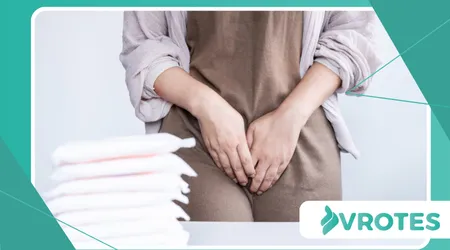Hormone-Free Strategies for Easing Vaginal Dryness

Easing vaginal dryness. Vaginal dryness, a common yet often unspoken challenge, can significantly impact quality of life.
Anúncios
Many women seek effective solutions for easing vaginal dryness without resorting to hormone therapy. The good news is, a wealth of natural and lifestyle-based approaches can offer profound relief.
This comprehensive guide explores these avenues, empowering you to reclaim comfort and intimacy.
Understanding the Landscape: Why Vaginal Dryness Occurs
Vaginal dryness often stems from decreased estrogen levels. While most commonly associated with menopause, it can also affect younger women due to various factors.
Childbirth, breastfeeding, certain medications, and even stress can contribute to this uncomfortable condition.
Anúncios
Identifying the root cause is the first step towards effective management.
The Power of Lifestyle Adjustments
Simple daily habits hold immense potential for alleviating vaginal dryness. Hydration is paramount.
Think of your body as a well-watered garden; every cell, including those in your vaginal tissues, thrives on sufficient moisture. Aim for at least eight glasses of water daily.
Diet also plays a crucial role. Incorporate foods rich in phytoestrogens, plant-based compounds that mimic estrogen’s effects in the body.
Flaxseeds, soybeans, and certain fruits and vegetables are excellent sources. These dietary additions can gently support your body’s natural balance.
Regular physical activity enhances blood circulation throughout the body, including the pelvic area. Improved blood flow nourishes tissues and can contribute to better natural lubrication.
Even a brisk walk for 30 minutes daily can make a noticeable difference.
Read here: Menopause and Memory: Foods That Support Cognitive Function
Stress management techniques are equally vital. Chronic stress can disrupt hormonal balance, potentially exacerbating dryness.
Practices like yoga, meditation, or even deep breathing exercises can promote relaxation and overall well-being.

Topical Solutions: Directly Addressing Discomfort
When seeking to address discomfort directly, non-hormonal topical options are invaluable for easing vaginal dryness.
Vaginal moisturizers, distinct from lubricants, are designed for regular use.
They adhere to the vaginal walls, providing long-lasting hydration and helping restore natural moisture. Apply them a few times a week, independent of sexual activity.
Lubricants, on the other hand, are intended for immediate relief during intercourse. Opt for water-based or silicone-based varieties.
Avoid petroleum-based products, as they can irritate delicate tissues and compromise condom effectiveness.
Consider products containing hyaluronic acid. This remarkable substance, naturally found in the body, can hold up to 1,000 times its weight in water.
Topical hyaluronic acid can significantly improve tissue hydration and elasticity, offering sustained comfort.
For instance, imagine your vaginal tissues as parched desert soil. A lubricant is like a sudden rainfall, offering temporary relief.
Read more: The Role of Gut Health in Reducing Menopause Digestive Issues
A vaginal moisturizer, however, is like adding consistent irrigation, slowly restoring the soil’s natural moisture content and ability to retain water.
This sustained approach is key to long-term comfort.
Embracing Natural Remedies and Supplements
Certain natural remedies and supplements show promise in easing vaginal dryness.
Sea buckthorn oil, available in capsules or topical applications, is renowned for its beneficial effects on mucous membranes.
It contains essential fatty acids and vitamins that support tissue health.
Another often-cited option is black cohosh, a popular herbal supplement for menopausal symptoms. While research is ongoing, some women report a reduction in dryness when using it.
Always consult with a healthcare provider before starting any new supplement regimen.
Vitamin E, both orally and topically, is another consideration. Its antioxidant properties can support tissue repair and elasticity.
Some women find relief by applying a small amount of pure vitamin E oil directly to the vaginal opening.
A recent study published in the journal Menopause in 2023 highlighted the efficacy of non-hormonal vaginal moisturizers containing hyaluronic acid in improving symptoms of vaginal dryness and dyspareunia (painful intercourse) in postmenopausal women.
The study involved a cohort of 150 women and demonstrated significant subjective improvement in dryness scores after 12 weeks of consistent use, without any reported systemic side effects. This underscores the power of targeted, non-hormonal interventions.

The Role of Intimacy and Sexual Activity
Regular sexual activity, with or without a partner, can be a surprisingly effective strategy for easing vaginal dryness.
Arousal naturally increases blood flow to the vaginal area, promoting lubrication and maintaining tissue health. This “use it or lose it” principle applies to vaginal elasticity and moisture.
++ Digital Detox Plan to Improve Sleep and Mental Clarity
Don’t underestimate the power of foreplay. Sufficient stimulation before penetration can significantly enhance natural lubrication, making intercourse more comfortable and pleasurable.
Communication with your partner about your needs and comfort levels is also paramount.
| Non-Hormonal Strategy | Mechanism of Action | Benefits for Vaginal Dryness |
| Hydration (Water Intake) | Maintains overall body fluid balance | Supports natural lubrication and tissue health |
| Phytoestrogen-Rich Diet | Mimics estrogen’s effects | Gentle hormonal support, improved tissue elasticity |
| Regular Exercise | Enhances blood circulation to pelvic area | Increased natural lubrication, tissue nourishment |
| Vaginal Moisturizers | Provides sustained hydration to vaginal walls | Long-lasting relief, restores natural moisture |
| Lubricants | Reduces friction during sexual activity | Immediate comfort during intercourse |
| Sea Buckthorn Oil | Rich in fatty acids and vitamins | Supports mucous membrane health, improves elasticity |
| Regular Sexual Activity | Increases blood flow and natural lubrication | Maintains tissue health and elasticity |
When to Seek Professional Guidance
While many hormone-free strategies can provide significant relief, it’s crucial to consult a healthcare professional.
They can rule out other underlying conditions and provide personalized recommendations for easing vaginal dryness. Don’t hesitate to discuss your symptoms openly and honestly.
Consider Maria, a 52-year-old teacher experiencing significant discomfort. She initially attributed her symptoms solely to menopause.
After consulting her doctor, she learned that a new antihistamine she was taking for allergies was also contributing to her dryness.
By adjusting her medication and incorporating regular vaginal moisturizers, she found considerable relief. This highlights the importance of a comprehensive medical evaluation.
Sarah, a 35-year-old mother of two, who noticed increased dryness after breastfeeding.
Her doctor recommended a water-based lubricant for intimacy and emphasized the importance of adequate hydration.
Sarah also started incorporating flaxseeds into her daily diet, which gradually improved her overall comfort. These personalized approaches are often the most effective.
Remember, you are not alone in experiencing vaginal dryness. An estimated 17% of women aged 18 to 50 experience vaginal dryness, with this number rising significantly to 50% or more in postmenopausal women.
This widespread prevalence underscores the importance of accessible and effective solutions.
Addressing vaginal dryness is not just about physical comfort; it’s about reclaiming intimacy, confidence, and overall well-being.
By exploring these hormone-free strategies, you can take proactive steps toward a more comfortable and fulfilling life. Aren’t you ready to embrace a future free from this discomfort?
Concluding Thoughts
Navigating vaginal dryness can be challenging, but it doesn’t have to dictate your life.
By understanding the causes and embracing a holistic approach that includes lifestyle adjustments, topical solutions, and natural remedies, you can find profound and lasting relief.
Empower yourself with knowledge and choose the path that best suits your body and your comfort.
Frequently Asked Questions
Vaginal dryness only affects menopausal women, right?
No, while common in menopause, vaginal dryness can affect women of any age due to factors like childbirth, breastfeeding, certain medications, and stress.
Are vaginal moisturizers the same as lubricants?
No. Vaginal moisturizers are for regular use to hydrate tissues over time, while lubricants provide immediate relief for discomfort during sexual activity.
Can diet really make a difference for vaginal dryness?
Yes, incorporating foods rich in phytoestrogens, like flaxseeds and soybeans, can gently support your body’s natural balance and potentially improve tissue health.
How often should I use a vaginal moisturizer?
Generally, vaginal moisturizers are used a few times a week, independent of sexual activity, to maintain consistent hydration. Follow the product’s specific instructions.
When should I see a doctor for vaginal dryness?
If home remedies aren’t providing sufficient relief, if you experience severe pain, or if you’re concerned about underlying conditions, consult a healthcare professional.
They can offer a proper diagnosis and personalized treatment plan.
++Our Favorite Vaginal Dryness Hacks You Can Start Using Today
